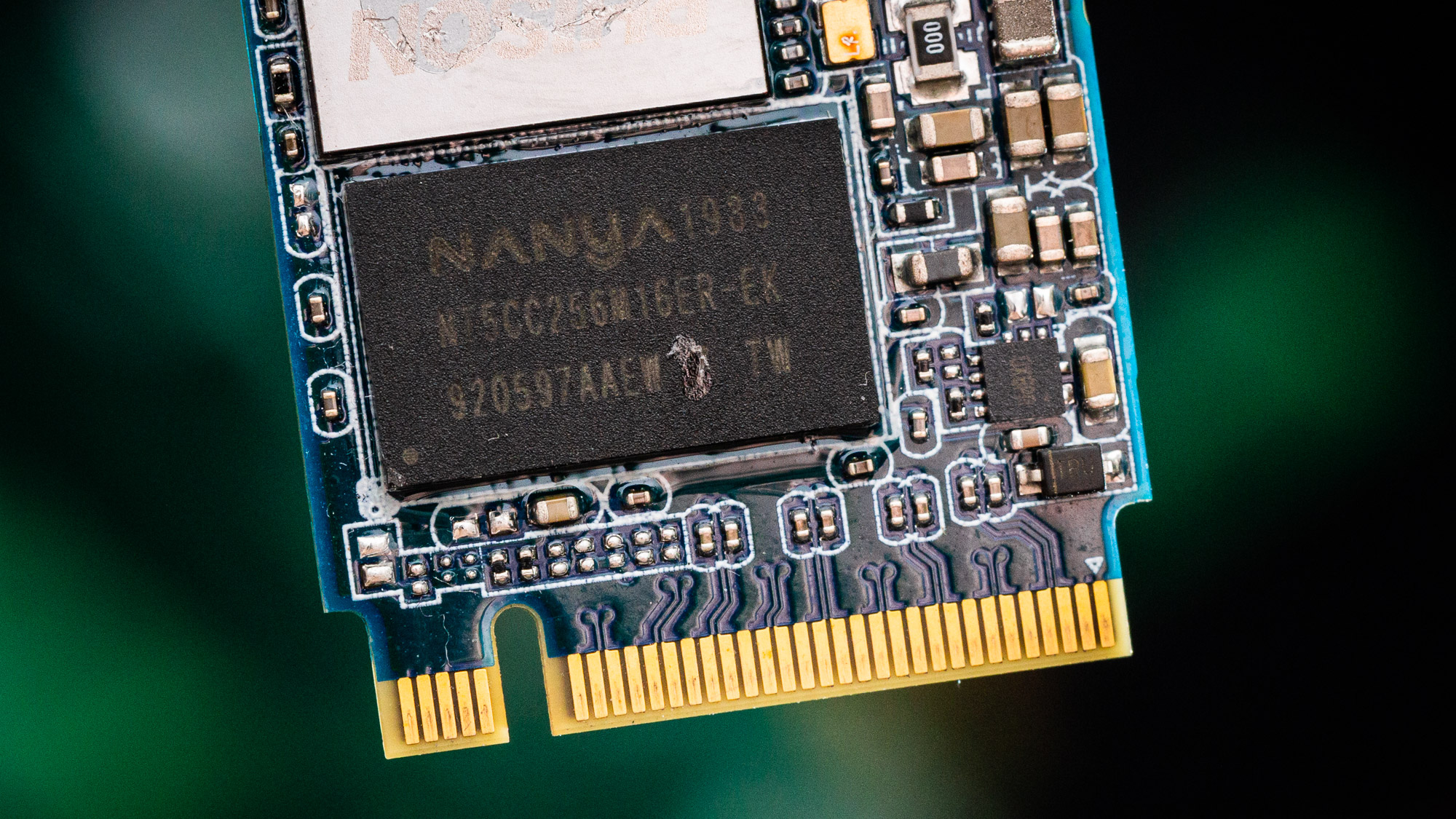Why you can trust Tom's Hardware
Enmotus’s FuzeDrive P200 is an innovative storage device that delivers solid performance and has great potential for home lab and virtualized applications. The benefits of the P200’s SLC implementation extend beyond ‘just’ having extremely high endurance.
Most of the workloads flow directly through the SLC portion of the flash, allowing the FuzeDrive P200 to deliver faster-than-average performance in many of our benchmarks — even when compared to traditional SSDs with full dynamic SLC caching. This technique even helps increase power efficiency under load. As a result, the P200 is among the most efficient PCIe 3.0 SSDs we’ve tested.
The FuzeDrive P200 does suffer from slow sustained write performance; you just can't get around that with QLC flash. The drive slowed to a mere 200 MBps during our extended write testing, while drives like the 980 Pro can write at 1.7 GBps for long periods of time. As a result, while the P200 delivers up to an astounding 3.6 PB of endurance, you’ll have to be patient during extended-duration file transfers, which might not be the best fit for the professional crowd. The P200 does recover quickly, though, so it bounces back well after extended sessions of heavy abuse.
One could argue that you could heavily overprovision a QLC SSD and get similar results. For instance, you could configure a 2TB SSD to just 1.6TB in an attempt to reach similar endurance levels as the P200, but based on some quick napkin math, that's not quite possible. The gains from heavy overprovisioning simply aren’t enough to outweigh the extreme levels of higher endurance provided by the SLC zone in conjunction with the AI NVMe driver.
Enomotus’s overall goal with the FuzeDrive P200 SSD is to provide a balance of performance, endurance, and capacity at a significantly lower price point than a single high-capacity SSD. While we think the company could be on track for greatness, they don’t quite have a winner yet at current prices.
The software capability is part of the cost of this purchase, and for those looking for this type of solution, it can be an awesome product. However, Enmotus is banking more on the value of its software than the hardware behind it, so the FuzeDrive P200 isn’t for everyone. That’s especially true for gamers, who often splurge on a new GPU but only save pennies for storage and don’t often write hundreds of terabytes of data to their storage device in a year.
Enmotus is a solid proof of concept and a stepping stone for something better in the future. The high cost of the device offsets its mainstream appeal, though. If you’re looking at the P200 for the hardware alone, it is overpriced, especially compared to the fastest NVMe SSDs on the market (which the FuzeDrive P200 is not). The benefits of Enmotus’s SSD technology should scale well as larger SSDs hit the market, though, and pairing the tiering technique with faster SSD controllers and flash could make for more competitive drives in the future.
Get Tom's Hardware's best news and in-depth reviews, straight to your inbox.
MORE: Best SSDs
MORE: How We Test HDDs And SSDs
MORE: All SSD Content

Sean is a Contributing Editor at Tom’s Hardware US, covering storage hardware.
-
waltc3 I make it a habit to never buy products that employ buzzwords in their advertising. AI = buzzword. AI = programming--just good, old-fashioned programming, and not one thing more. And write endurance is a big con these days--even my lowly 960 EVO 256GB NVMe drive will last 15 years at my present rate of usage- -and is sure to be replaced long before then...;) Endurance = 75TB . Also, endurance numbers have nothing to do with construction--an NVMe with 75TB write capacity is built the same as an NVMe with 300TBs write estimate, etc--it's not "sturdier," etc. If you are an aggressive user and write 6 TB's per year to an NVMe drive warranted for 5 years with an endurance estimate of 300TB, well, you warranty runs out somewhere after 30TBs...;) Likely, too, you'll buy something new to replace it before that five years is up.Reply
I love my NVMe drives--they're great. What I don't love is hype and other kinds of misleading advertising. -
cryoburner 1TB of QLC for $200? Considering drives with that amount of QLC and the exact same controller can be had for a little over $100, that's a huge markup for what amounts to little more than a better firmware implementation. It sounds like those $100 drives could theoretically implement similar firmware that would do the exact same thing if one were willing to give up around 10% of their capacity to act as a permanent SLC cache like this drive does. It probably won't be long before we see other manufacturers do something similar in drives costing almost half as much.Reply
While I'm not too familiar with the exact workings of how that internally operates, if data is accessed in a mostly random manner across the drive's entire capacity, then I would suspect this drive might have some trouble utilizing more than the size of its SLC cache for that purpose, as the caching algorithm wouldn't likely be able to predict which sectors are going to be written to otherwise. So, there might be less than 128GB usable for that purpose with the 1.6TB drive, or 24GB for the 900GB drive. If one were rapidly writing to random locations in a file much larger than that, I suspect you would burn through the QLC's endurance in no time. You might also end up seeing performance drop to those 200MB/s sustained write speeds, in which case you might be better off with a less expensive and higher capacity platter-based drive.InvalidError said:An SSD with lots of TBW endurance just in time for people to create Chia plots!
